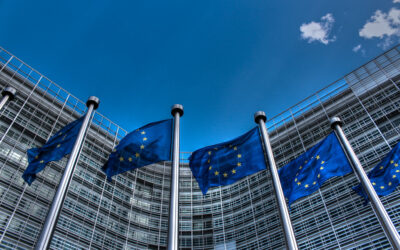
Last week’s article focused on the willingness of the Chinese cars companies to come to the European market. To continue the topic, today’s article focuses on the consequences of the Chinese car companies coming to Europe. From the impacts on the European automotive market to the legislative measures imposed and customer satisfaction, the article will give the market overview.
According to the International Energy Agency, China sold more than eight million electric vehicles last year (2023), accounting for about 60% of global sales. This expansion into international markets raises concerns among policymakers in Europe and the US, who fear that their domestic companies will struggle to compete due to the subsidies that allow Chinese firms to offer lower prices.
The EU is expected to take a more measured approach. The nine-months investigation into Chinese imports announced by the European Commission last year concluded with the EU informing Beijing of its intention to impose new tariffs on imports of Chinese electric vehicles. These tariffs aim to address the alleged state support provided to China’s car manufacturing industry, which has allowed exported vehicles to be sold at lower prices than those of global competitors. This would aim to level the playing field and address the cost advantage held by Chinese manufacturers. The tariffs vary by brand, with Geely, a stakeholder in Volvo, facing a 20% tariff. BYD brands, including the Dolphin and Seal models introduced in the EU last year, will be subject to a 17.4% duty.
However, such tariffs could also impact European companies that manufacture or source components from China. For instance, BMW and Tesla, which build cars in China for export to Europe, would face increased costs. Additionally, European manufacturers exporting high-value models to China could face retaliatory tariffs. Electric vehicle manufacturers that cooperated with EU investigators will face a 21% tariff, while those that did not cooperate will incur the highest tariff of 38.1%. For a €30,000 entry-level car, a 17.1% tariff will increase the price by €5,250, while a 38.1% tariff will raise it by €11,450. These charges are in addition to the existing 10% levy on cars imported into the EU, resulting in total tariffs of up to 48% on Chinese-made EVs.
The European Commission has indicated the possibility of resolving the dispute through negotiations before the tariffs provisionally take effect on July 4, 2024. Consumers who order a car before this date and have a locked-in price should avoid the price increase, but they should verify their contract.
European manufacturers find the low prices for Chinese cars concerning as they fear those models could dominate their markets, displacing locally produced vehicles. Over the past two decades, China’s auto industry and battery sector have rapidly developed, driven by the “Made in China 2025” strategy launched in 2015. This strategy has resulted in the rapid growth of companies like BYD, which is now competing with Tesla as one of the world’s largest electric vehicle manufacturers. Established companies such as SAIC and Geely have also become significant players in the EV market.
Executives from major European carmakers have expressed concerns about the potential for trade retaliation and the impact of tariffs on their operations. Support for the EU investigation has primarily come from France, although there is debate among French manufacturers about the efficacy of tariffs. Some industry leaders advocate for a strong European industrial policy to support the sector and enhance competitiveness. The UK is also considering its stance, with its trade watchdog indicating readiness to investigate Chinese EV imports if requested by the government or industry.
Ultimately, higher tariffs may provide Europe with time to adapt to the competition from China. According to the EU, Chinese-made cars accounted for 25% of the EU market in 2023, up from 3.9% in previous years. The EU argues that the intense competition in China, which has driven prices down domestically, is now affecting the European market. This competition forces EU manufacturers to lower their prices, negatively impacting their profits and future investment potential. However, the consensus within the industry is that Europe must implement broader strategies beyond tariffs to maintain its position in the global automotive sector.
References
Leggett, T. (2024, June 11). Why the EU might be about to make Chinese electric cars more expensive. Retrieved from BBC News: https://www.bbc.com/news/articles/cpww6w412n7o.amp
O’Caroll, L., & Jolly, J. (2024, June 12). How will new EU tariffs on Chinese electric vehicles work? Retrieved from The Guardian: https://www.theguardian.com/business/article/2024/jun/12/how-will-new-eu-tariffs-on-chinese-electric-vehicles-work



